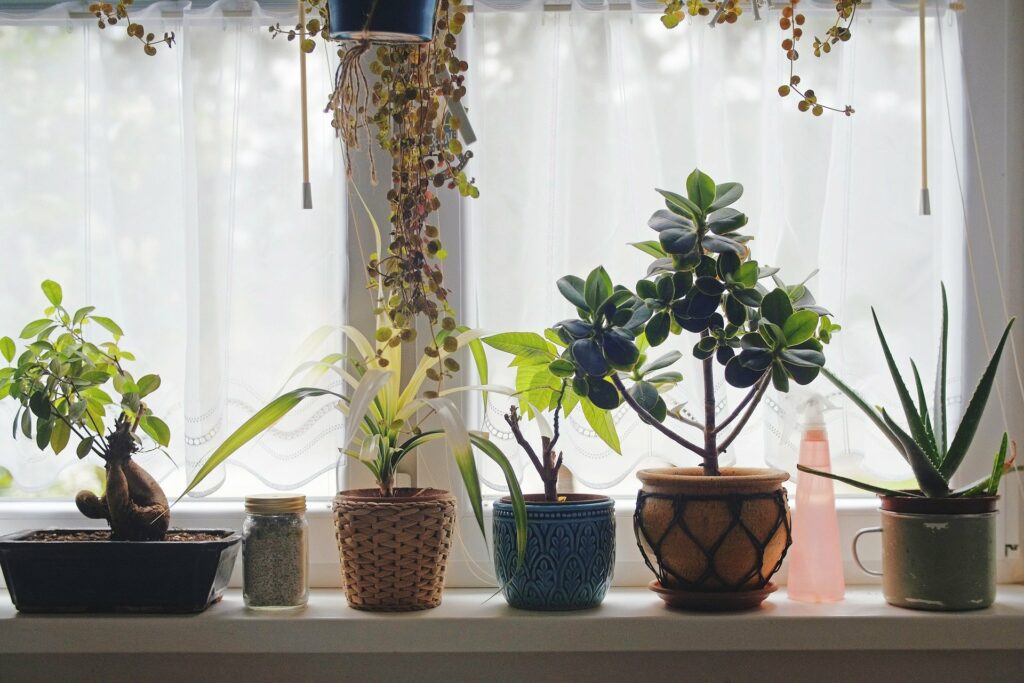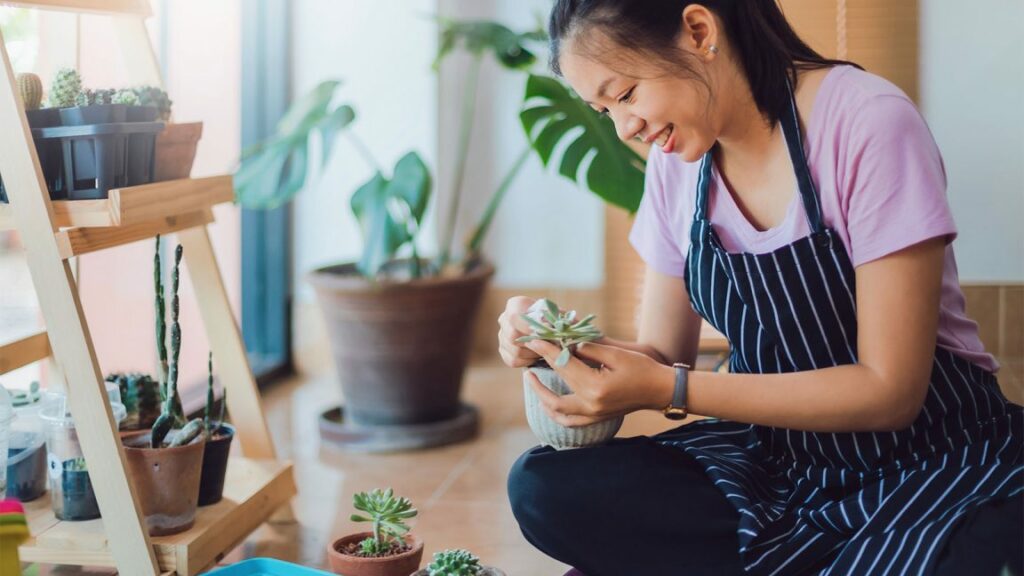Indoor plant continues on the rise, thanks to Instagram's greenery-inspired home designs, plant-based podcasts, and online plant subscription services. While social media trends are infamous for having short lifecycles, indoor gardening may last longer than most due to the numerous ways houseplants promote health and well-being.
Here's what science has to say about the advantages of living and working with indoor plants.
Benefits of planting indoor plants:
Many individuals like to live and work in manicured green spaces, and the majority want to be surrounded by attractive flora. Is there anything else to it? Here are some of the advantages that science suggests indoor plants may bring.
1. Indoor plants may aid with stress reduction:
A research study found that plants around your house or office might help you feel more relaxed, calmed, and natural, according to a study published in the Journal of Physiological Anthropology.
Participants in the research were assigned one of two tasks: repotting a houseplant or performing a short computer-based activity. After each move, researchers assessed the physiologic markers linked with stress, such as heart rate and blood pressure.
They discovered that the indoor gardening job reduced participants' stress reactions. On the other hand, the computer task increased heart rate and blood pressure, even though the research participants were young males who were used to working on computers.
Working with plants, according to the researchers, can alleviate both physiological and psychological stress.

2. Real plants can help you focus
Plastic plants will not benefit you in passing your examinations. Researchers put 23 students in a classroom with either a fake plant, a genuine plant, a picture of a plant, or no plant at all in a short study with 23 participants.
Brain scans of the participants revealed that pupils who studied in the classroom with actual living plants were more attentive and able to focus than students in the other groups.
3. Working with plants can be therapeutic
Indoor gardening can be beneficial for those suffering from the symptoms of mental illness.
Researchers have used horticultural therapy to improve emotions of well-being in patients suffering from depression, anxiety, dementia, and other illnesses.
Although horticulture treatment has been practiced for generations, it has found a modern form: medical clinics in Manchester, England, are now "prescriptioning" potted plants to patients suffering from depression or anxiety.
4. Plants may increase your productivity
A bromeliad might turn out to be the finest coworker you've ever had.
Several studies have indicated that having plants in the workplace boosts both productivity and creativity. Students at a university computer lab worked 12 percent quicker and were less anxious when plants were placed nearby, according to a widely recognized 1996 research.
Researchers pushed participants to generate innovative word connections in a 2004 study. They did better when there was a plant in the room with them.
In addition, according to a 2007 research, those who had more plants in their office had fewer sick days and were more productive at work.

5. Plants have the potential to improve the quality of indoor air
Typically, scientific evidence for phytoremediation — plants cleaning pollutants from the air — begins with NASA research performed in the 1980s.
Researchers were exploring ways to enhance the air quality in a sealed spaceship at the time, and they discovered that the roots and soil of houseplants greatly decreased airborne volatile organic compounds (VOCs).
Since those early investigations, academics have both verified and challenged those conclusions.
Recent research suggests that a significant number of plants would be required to equal the air-purifying effectiveness of existing biofilters and other technologies.
If you do decide to buy houseplants to refresh the air organically, here are a few of the species that studies have proved to be the most effective such as areca, lady, dwarf date, and bamboo palms
- Boston fern
- Rubber tree
- Spider plant
- Ficus tree
Plants may be a source of joy in your home or business. Indoor gardening alleviates stress, increases creativity, productivity, and attention, and aids in healing. There is some evidence that houseplants can improve the air quality in your home.
If you have children or pets in the house, you should know which plants are poisonous. If you suffer from asthma or allergies, keep an eye out for species that aggravate your symptoms.
Sharing your home or working area with live, "breathing" plant life may make your surroundings happier and healthier.


















